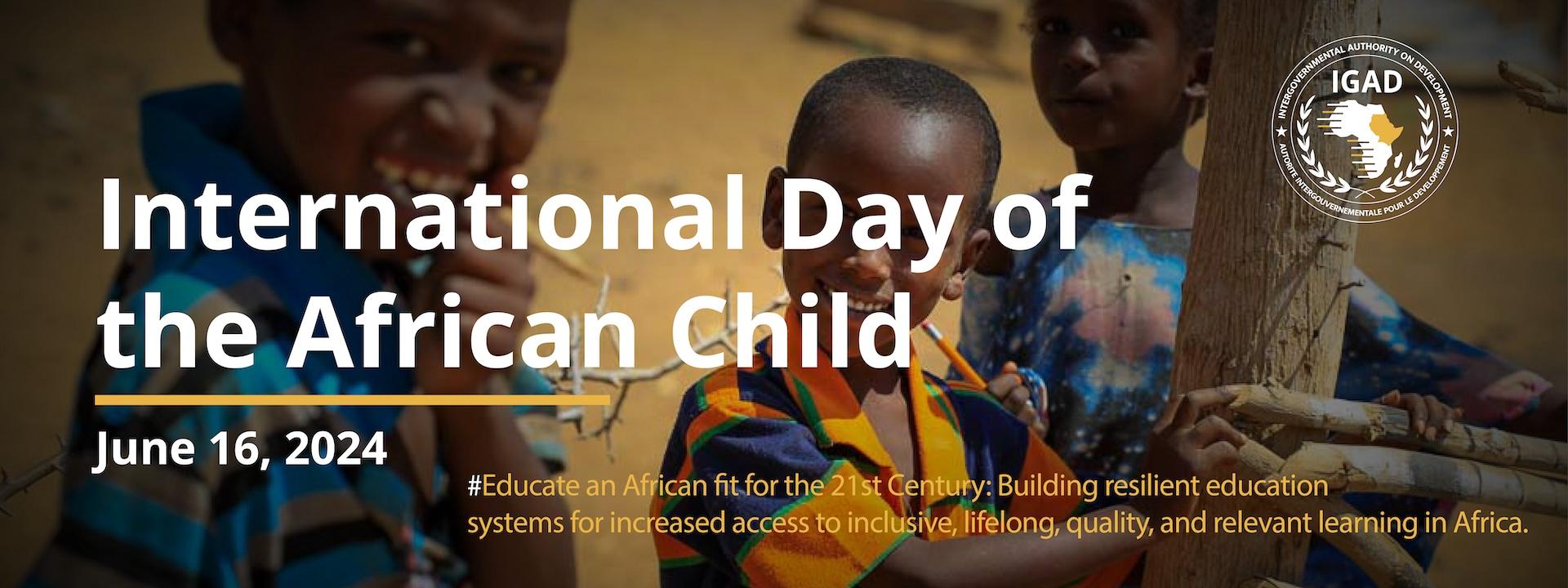Guided by the aspirations set by Africa’s Agenda 2040 and informed by the African Charter on the Rights and Welfare of the Child (ACRWC), the Intergovernmental Authority on Development (IGAD), as one of the Regional Economic Communities of the Africa Union (AU), is committed to advancing the protection agenda of children in the region. Children constitute a significant share of the regional population and encounter numerous vulnerabilities that hinder their ability to fully exercise and enjoy their rights to survival, development, protection and participation.
IGAD’s extensive policy and programmatic interventions in sectors such as health, nutrition, education, social protection, migration, and displacement among others have significantly contributed to improving the lives of many children, families and communities in the region. However, despite the positive strides, key gaps remain that need to be addressed to the full realization of children’s rights in the region.
Children in the IGAD region bear the brunt of the profound effects of conflict, insecurity, climate change and underdevelopment, which severely compromise their fundamental rights. The economic context of the region makes it challenging for vulnerable children to access essential needs such as food, water, shelter, education and healthcare. In many communities, harmful practices like Female Genital Mutilation (FGM) and child marriage pose serious protection risks, particularly to girls. Children also face violence, abuse, neglect and exploitation at the household and community levels, often without proper reporting mechanisms and protective services equipped to address these issues.
Low birth registration rates in many member states have cascading serious implications for the protection of children, limiting their access to legal protections and heightening their vulnerability to abuse, violence and exploitation such as child marriage, child labour and child trafficking. Moreover, children’s right to survival, development, protection and participation are also hampered by the lack of access to information and sufficient opportunities for play, recreational and cultural activities. Meaningful child participation remains inadequately implemented and enforced across the region.
One pivotal initiative undertaken to tackle the challenges affecting children and strengthen IGAD’s regional leadership in advocating for a child-sensitive agenda is the development of a Regional Child Policy Framework. This Framework is designed to support member states in furthering their international and regional commitments under the Convention on the Rights of the Child and the ACRWC while integrating child-sensitive approaches into IGAD’s structure and operations.
To inform the development process of the Policy and ensure that it addresses specific issues children face at the national and regional levels, IGAD is conducting a series of national consultations with government and non-government stakeholders across its member states. Importantly, IGAD is also organizing consultations with children to guarantee that their voices and perspectives are heard and duly considered.
The IGAD Policy Framework will spell out concrete strategies and actions for member states to adopt in various policy areas, including child protection, health, education, climate change, social protection, justice, peace and security and child participation, among others. By setting standards drawn from the international and continental commitments of the member states, the Policy also aims to foster harmonization of IGAD policies and interventions relevant to children at the regional level and enhance cross-border collaboration among member states on issues affecting children’s rights.
The Policy will promote the rights and welfare of all children in the IGAD region by ensuring their survival, development, protection and participation. It places special emphasis on children impacted by inequalities and discrimination due to gender, disability, irregular migration and displacement and other socio-economic status, among others.
Aligned with the vision set by the African Union Agenda 2063 and Agenda 2040, the Policy will contribute to fostering an Africa fit for children by ensuring an enabling environment that allows children in the region to flourish and reach their full potential.
Written by:
Dr. Emnet Berhanu, IGAD Migrant Protection Specialist

